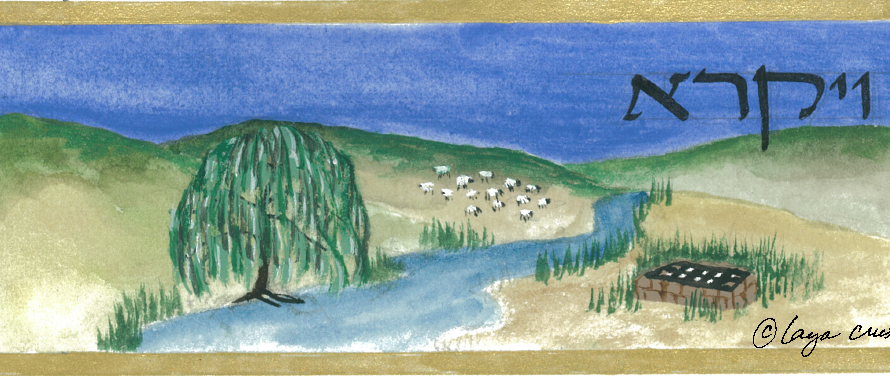
By Rabbi Ari Enkin, rabbinic director, United with Israel
Study the laws of the sacrifices, and it is as if you had actually offered them! It’s like double points!
This week’s Torah portion is Vayikra (Leviticus 1:1-5:26), and with it, we begin reading the book of Leviticus.
The book of Leviticus in general, and in this week’s Torah portion in particular is very heavy on sacrifices. One of the obvious (and, gulp, common!) sacrifices that a person could bring is a sin offering.
A sin offering was brought in order to gain atonement for a sin committed accidentally. Such an offering is said to remove the “stain” that an accidental sin causes to one’s soul. Yes, even accidental sins, although generally not punishable, cause us spiritual damage. So, too, after every sin, even an accidental one, a person becomes somewhat distanced from God. The sin offering is a way of restoring the relationship.
Today, however, we don’t have a Temple, and we don’t have sacrifices. So what can one do to “cleanse” onseself and gain atonement for sins? Some commentators suggest that any suffering that we experience in life serves to cleanse our sins and our souls. Although suffering can mean all types of illnesses and troubles, hopefully we will only experience “suffering” such as being given the wrong directions, arriving late at our destinations or not finding a parking spot. Although this “suffering approach” is the view of many philosophers and theologians, I’d like to focus on an alternative approach to cleansing our sins nowadays.
Our sages teach us that study is comparable to fulfillment, especially with regards to mitzvot (commandments) that we are unable to perform. As the Talmud teaches: “One who occupies himself in study of the laws of the offerings is considered as if he brought them.” That’s right! Study the laws of the sacrifices, and it is as if you had actually offered them! It’s like double points!
In fact, since our daily prayers are intended to serve in place of the sacrifices that were offered in the Holy Temple, many people have the custom to recite the scriptural sections that discuss the offerings before each of the daily prayers! Hence, by doing so, it is as if one had actually offered the sacrifice before beginning to recite the prayer that corresponds to the sacrifice.
All this is encouraging, but what is the message behind it? What’s the bottom line?
The bottom line is that Torah study can bring a person close to God just as the sacrifices did. This was true in the era when sacrifices were offered, and it is truer nowadays, when there are so few concrete life-changing endeavors that we can engage in to get closer to God.
Wanna to get closer to God? Wanna become a better person? Wanna purify your soul and become more spiritual? Get out the Torah books! And the more Torah you study, the less likely you are to commit an accidental transgression!
For more insights from Rabbi Ari Enkin on this week’s Torah portion, click on the links below:
https://unitedwithisrael.org/living-torah-salt-and-spirituality/
